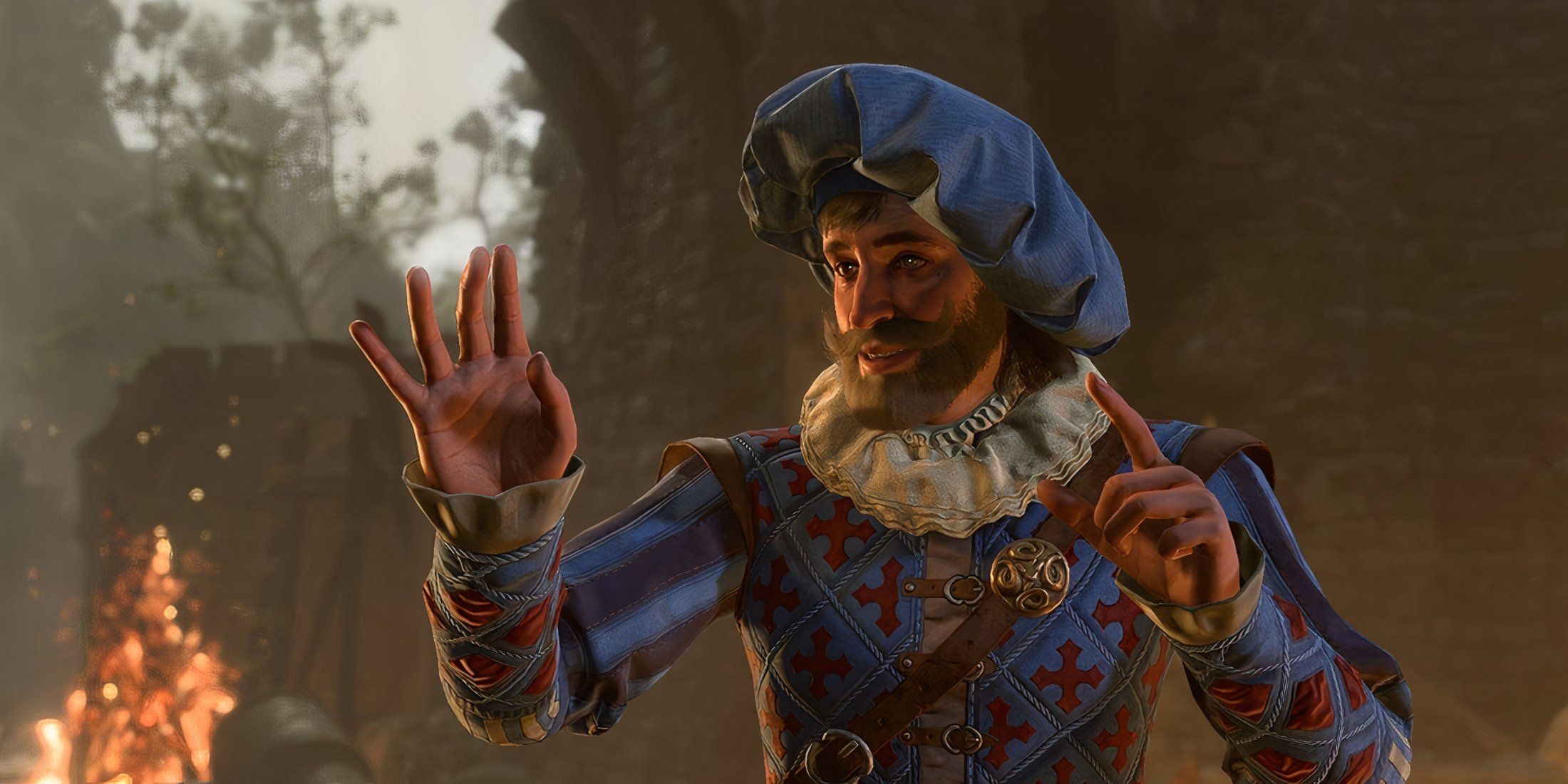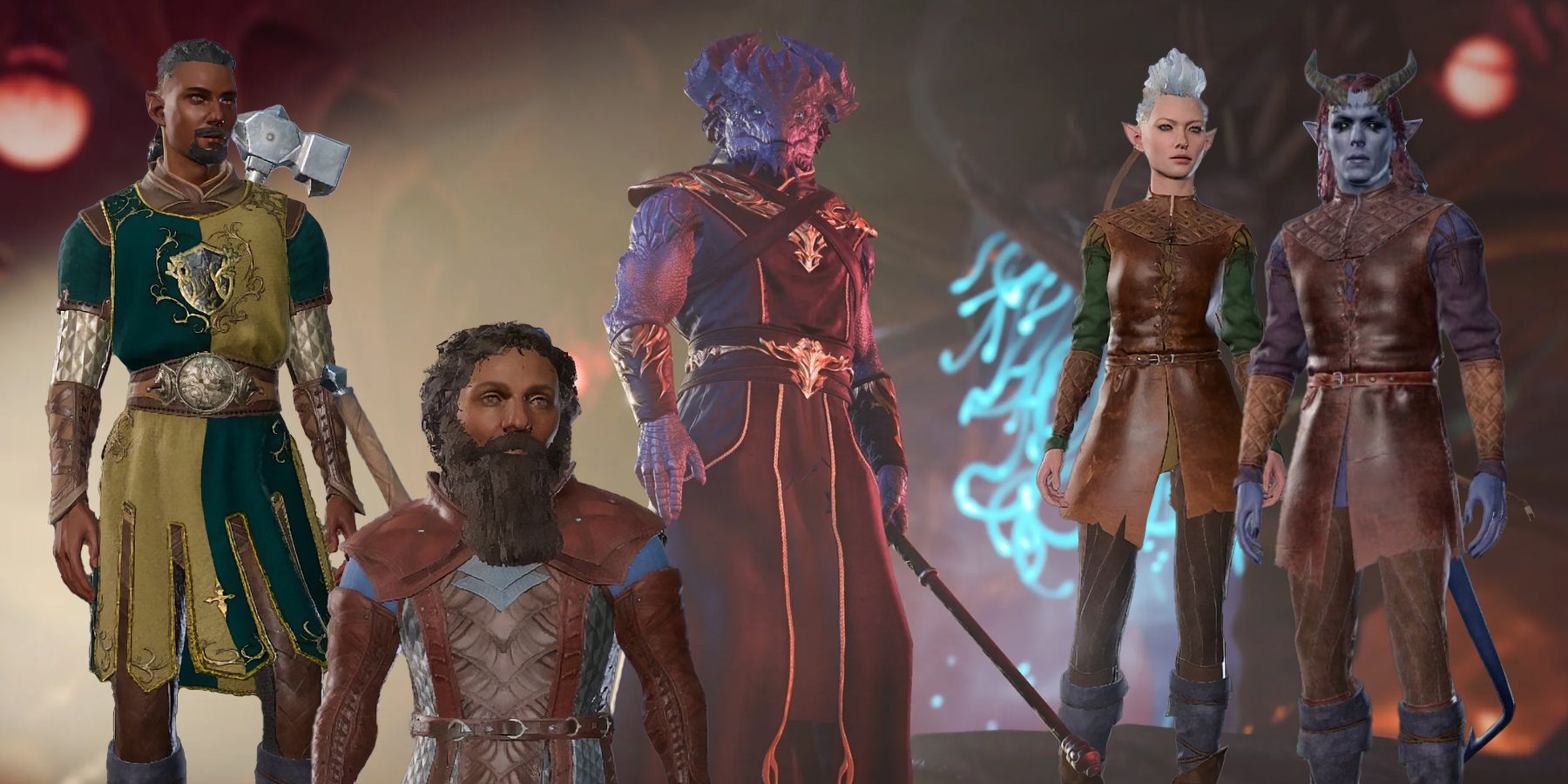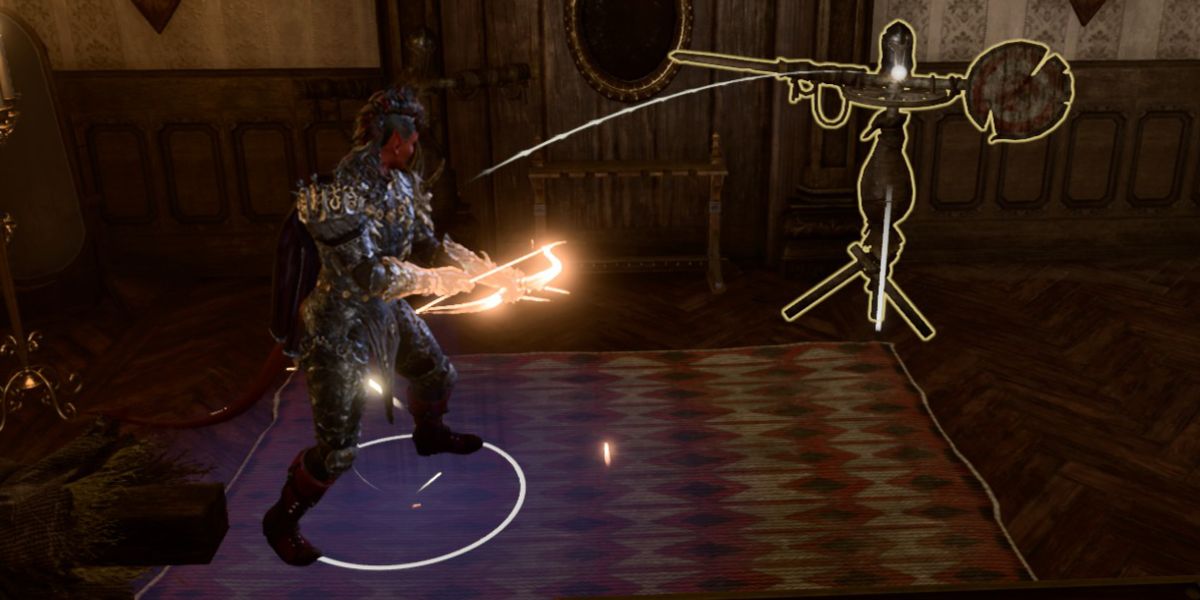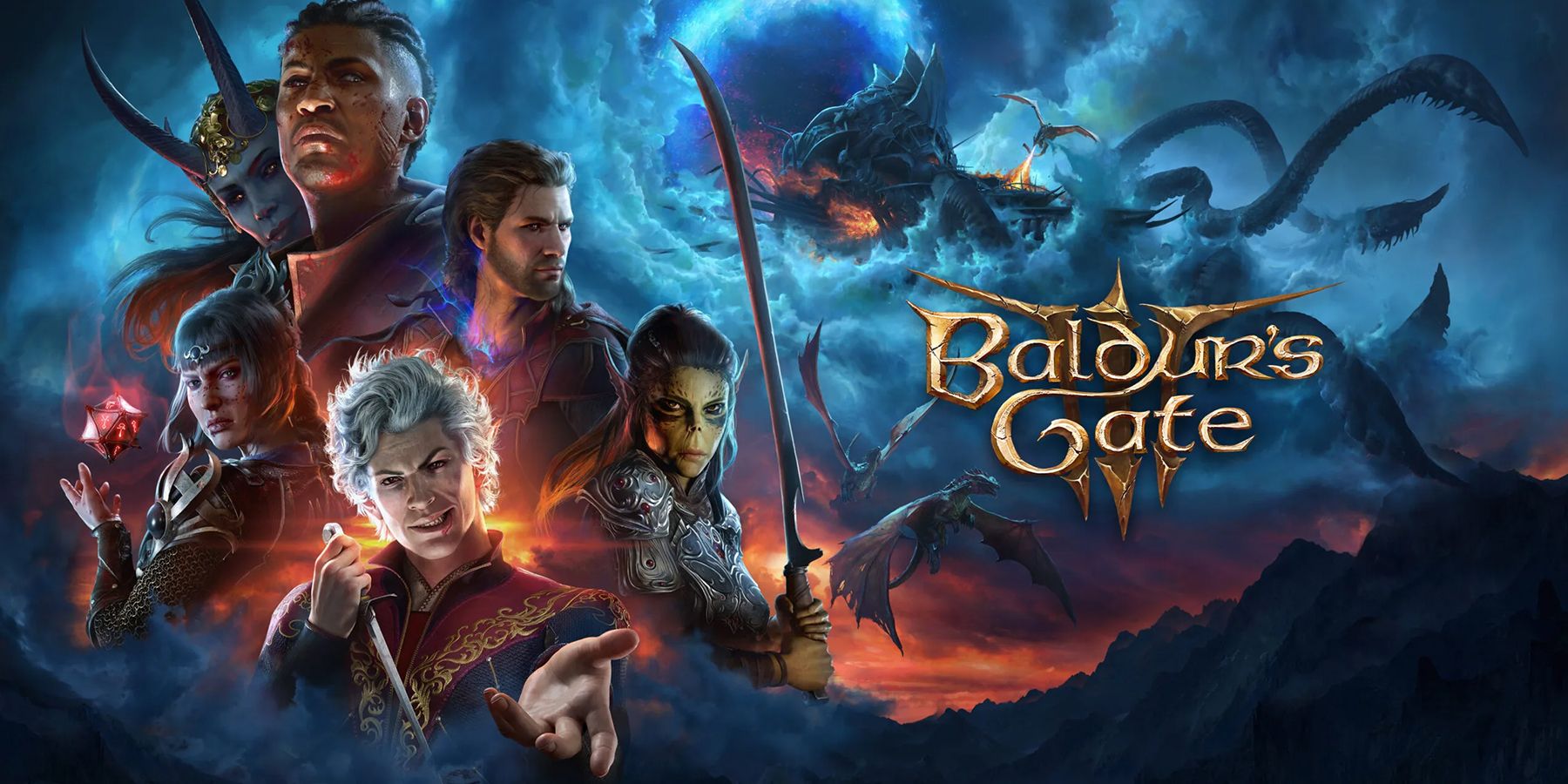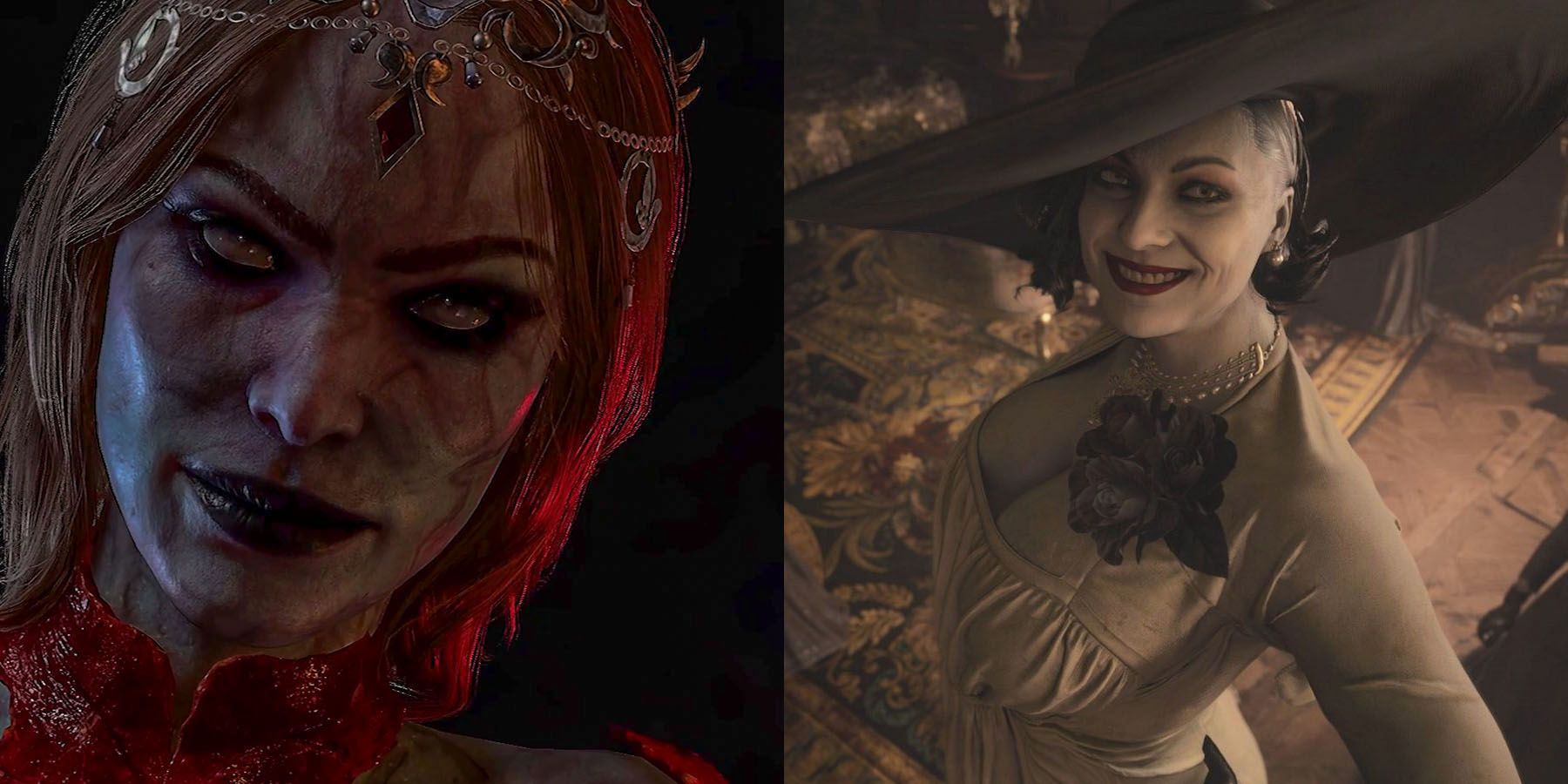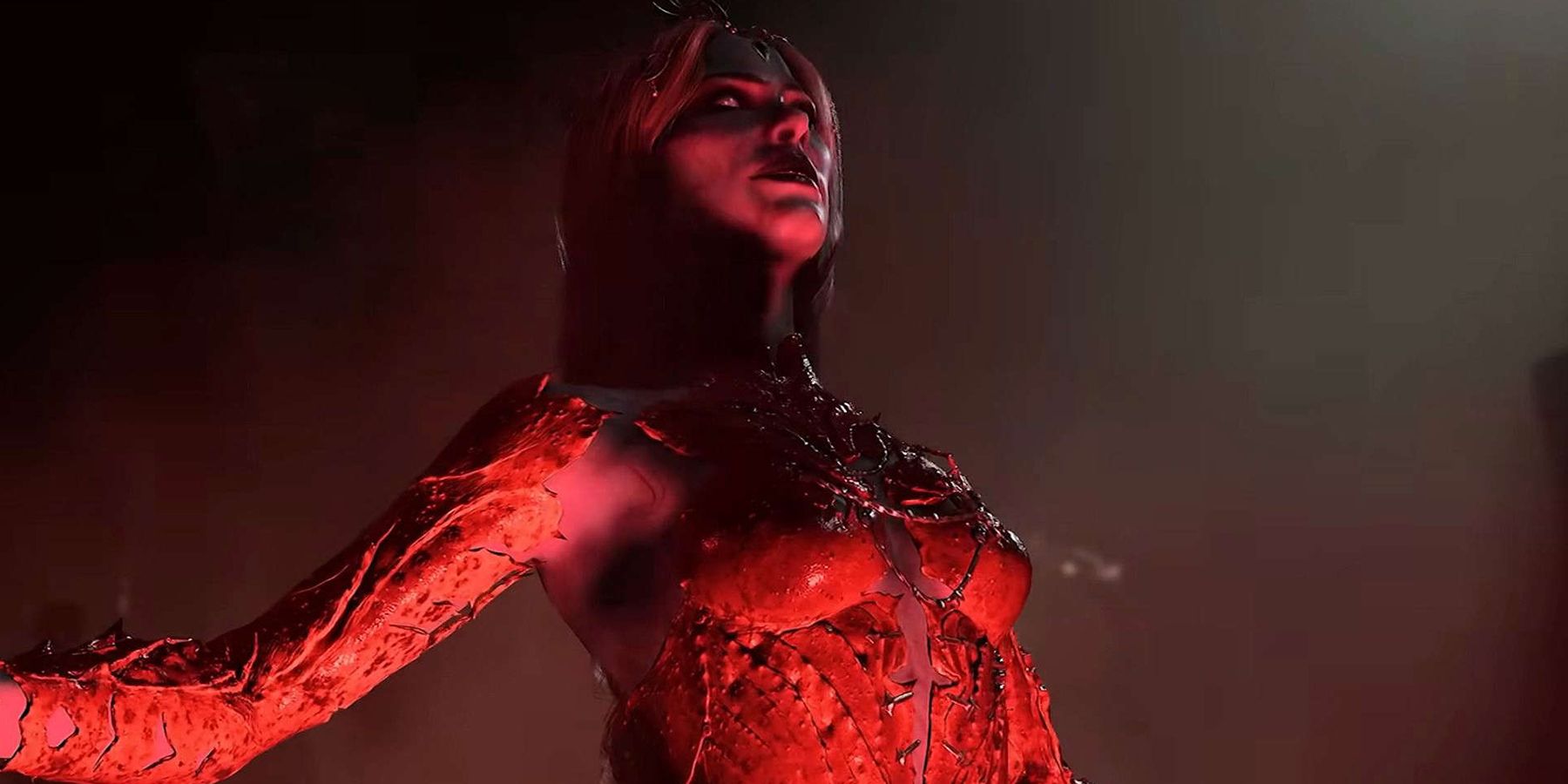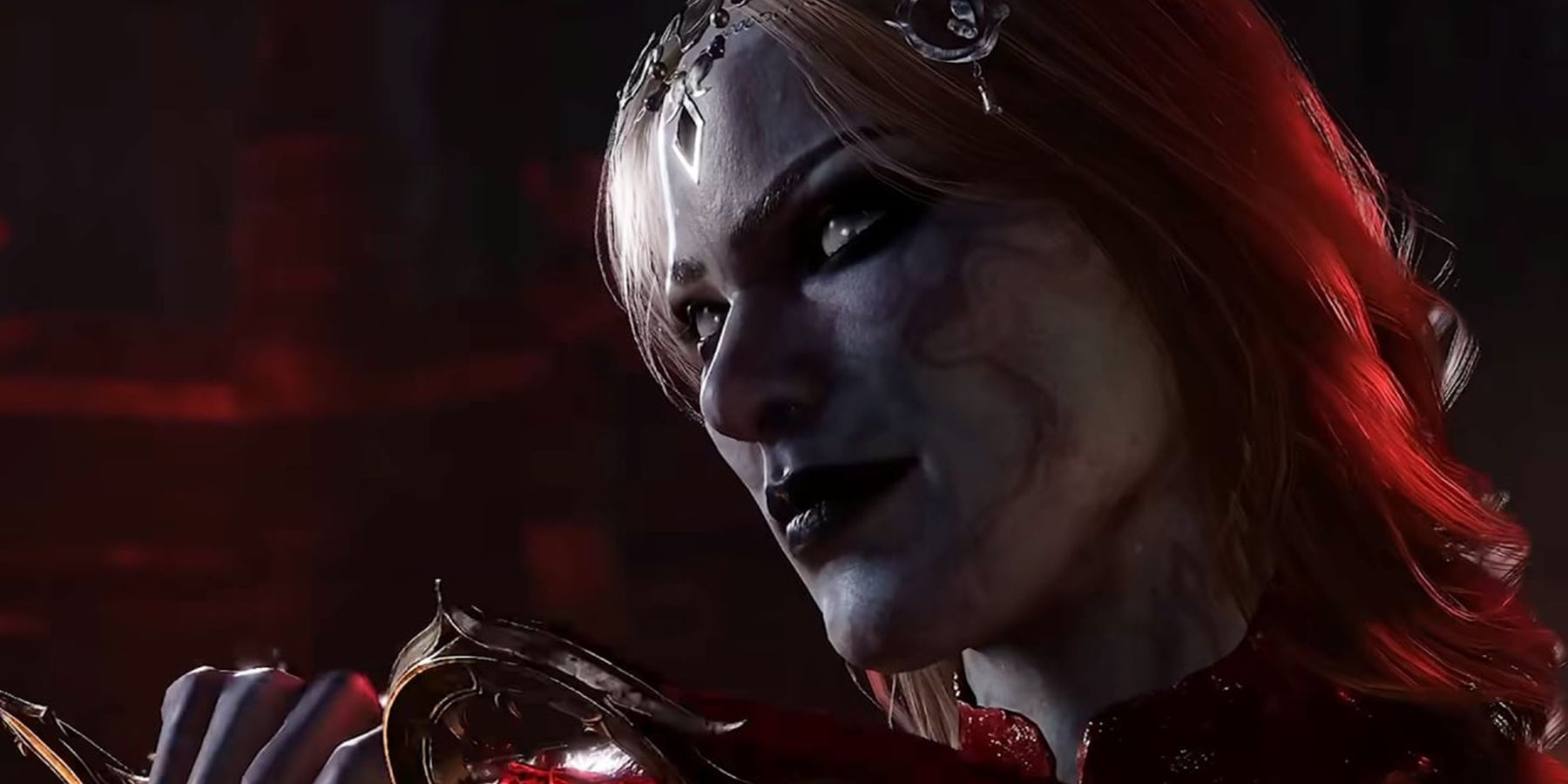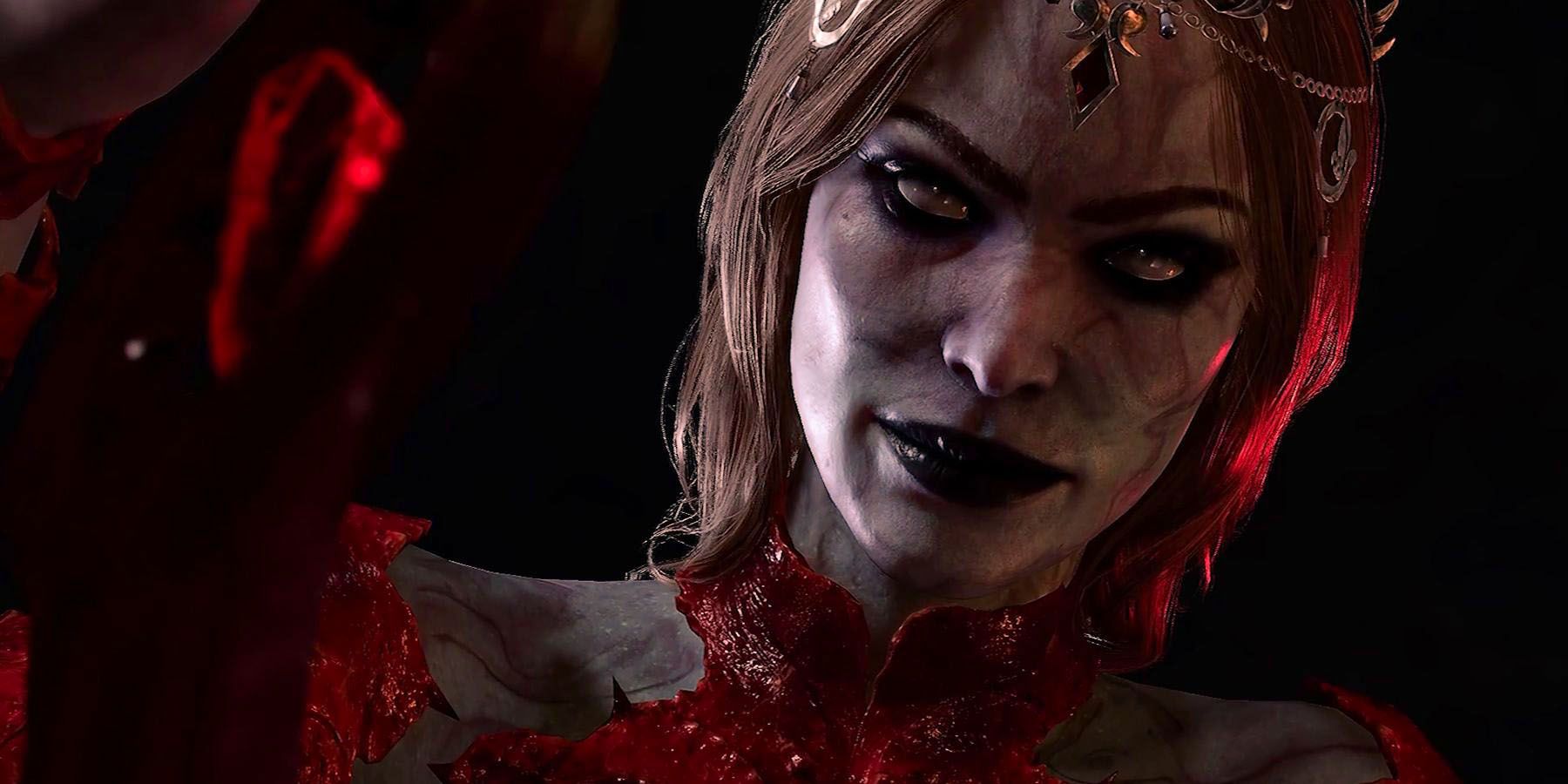Baldur's Gate 3's release earlier this month has been nothing short of sensational, garnering widespread critical acclaim and at times boasting over 800,000 concurrent players on Steam. One of the reasons the game has seen so much success is the sheer freedom of choice that players have when adventuring through its world. Not to mention the fact that Baldur's Gate 3 is a long-awaited threequel for one of the most beloved Dungeons & Dragons-based RPGs of all time.
In an interview with Game ZXC, Maggie Robertson spoke about her role as Orin the Red in Baldur's Gate 3, one of the key villains that players will encounter on their quest. Robertson talked about the challenges involved in portraying a character that has to respond to near-endless possibilities, as well as how Orin stacks up compared to other characters she's portrayed in games. The interview has been edited for brevity and clarity.
Q: You’re well-known for your performance as another iconic villainess, Lady Dimitrescu in Resident Evil Village. Did your portrayal of that character help inform your approach to Orin the Red? Are there any similarities you brought out between the characters?
Robertson: Yes! I think every villain is different, so it's always important to approach each one individually and find what is unique and specific to them. I really think that these two characters could not be more different. I know they're villains, and they're both strong and powerful in their own way, but they're actually quite different at their core.
Lady Dimitrescu’s violence is fueled by rage and anger, and this deep sense of hurt that is overlaying an immense capacity for love. It's that love that ultimately defines her actions within the game.
Orin’s violence is joyful. It's a form of self-expression to her. It's a form of pleasure. Similarly to Lady D, both of them, I think, strive and yearn for approval and recognition throughout the game. Orin believes herself to be Bhaal’s Chosen and strives to prove that to him throughout the game. But ultimately, her upbringing was so brutal: the only thing she knows is death. That is the only parameter she has to navigate her way through the world, whereas Lady Dimitrescu feels a lot more grounded in a sense of humanity. Orin’s humanity has been brutally ripped out of her from day one.
I actually feel a lot of sadness for Orin, because at the end of the day, she really is just this broken little girl who's desperate for approval. To me, it's heartbreaking.
When players first meet Orin, she can come across as simply an unhinged maniac trying to ruin their day. It’s nice that there’s more depth to her than that.
Robertson: And she is that, for sure. But I personally don't think villains are made, they're created. When you get into the work as an actor, it's about always asking the question “Why are they the way that they are? What are the choices that define them as a character?”
Our choices are what define us, so that's really where you're going to find character when you're diving in. It's always interesting to look at that. When you learn more about her upbringing, it's brutal. She's had a really gnarly upbringing, and if that's all you know, then of course you're going to turn out this way. Of course, your whole worldview is going to be skewed and twisted and manipulated into something dark and sick and sadistic. That's the only thing she knows.
I appreciate your empathetic attitude toward the character despite her actions and the idea that she’s not inherently bad. Something made her this way.
Robertson: I think when you play a character, you can't judge them. Otherwise, it is going to be surface-level and only one dynamic at play. In order to make them multifaceted and engaging, you have to be non-judgmental, and I think you have to fall in love with them a little bit. It's really hard to say that, and I realize on paper it sounds so weird to say that I could love something about this sadistic killer, but you kind of have to. You have to learn how to do that with them in order to fully invest in portraying them, in my opinion.
Q: Having played a few villains now, is that a streak that you plan to continue? Are you particularly interested in exploring evil characters, or has it just been coincidental?
Robertson: You know, it's kind of funny, I'm really cornering the market on those types of villainesses, I would say. It's certainly very fun for me. There's something really fun about playing villains because they're not bound by the typical limits of morality and ethics that heroes are bound by. As an actor, you can really stretch them to the limits of humanity or non-humanity as the case may be if they're non-human, and just play and experiment and find all the different emotional nuances that you possibly can with them. I find it quite fun, it's a very unique challenge.
That being said, I think every actor is always looking for new challenges and new opportunities. I would certainly be interested in expanding what I do and continuing to add to my portfolio and seeing what other cool characters come down the line. I'm excited to see what happens in the future. I'm very happy with where I'm at, but I'm also excited about what's to come.
Q: How do you prepare for a role like Orin the Red? Do you look to other characters or actors for inspiration, or watch certain films?
Robertson: All of the above. It also depends on how much time you have, because every game is different. In the case of Orin, the whole process was quite a whirlwind for me because I had about a week and then I was in London, filming and shooting this character. I really had to work quite quickly.
I definitely pulled from a wide variety of sources. For Orin, I was looking at a lot of different types of villains in media, specifically villains that capture this kind of chaotic unpredictability that Orin has as well. That was one of the first things I noticed about Orin: the dexterity of her thoughts and how she jumps from thought to thought quite quickly. My work as an actor became “How can I create the connective tissue between those thoughts?” And as a result, I think they’ve developed this sort of light, almost childlike playfulness around her use of text, which is a really terrifying juxtaposition when the words you're actually saying are horrifically violent and gruesome.
The conversation became about “How can I continuously flip the script on its head and make unexpected choices that continuously put the player on the back foot so that there's always this unnerving sense of discomfort around Orin?” She's quite disconcerting. You never know what she's going to do next, and she's really creative in how she pursues her goals. As a shapeshifter, that means you may never even see her coming. Anything is possible, so she's definitely a terrifying villain to me.
Q: What did you feel was most important to “get right” when it came to playing Orin? Is there something about her character that you felt was very important to express?
Robertson: Orin feels like she is this coil that is ready to spring, she is itching to act at all times, and she has to really actively contain herself and stifle those impulses throughout the game. So there's an interesting tension to her movement that comes from always having to control and stifle these impulses. It's interesting because while her language is often quite visceral and quite extravagant, her movements can be more subtle and more contained, at least until she decides to spring into action.
I also think Orin has a very interesting relationship with her blades. I was really intrigued by the idea that they could feel real and personified to her. I feel, in many ways, they are probably the most true, genuine, and constant relationships she's ever had in her life. It was also very important for me to find those small moments of movement throughout the game that I could integrate to really showcase that relationship. They’re all she has.
That's also because violence for her is quite joyful. I think we touched on this before, but death and violence are really all she knows. So for her, it's a form of self-expression. It's a form of worship, it's an expression of love. There's something quite unique about the way she approaches it, and she has a lot of glee and joyfulness when she's committing these atrocious acts of violence. So that is terrifying.
Q: How has your experience with Baldur’s Gate 3 differed from past projects? Were there any challenges that were unique to working on this game?
Robertson: This game is unique because it's just such a behemoth. It is a massive undertaking. There are so many different lines of narrative that could take place because it's based on player choices. At one time, Larian showed me the spreadsheet of how it all could play out. Every choice the player could make immediately branches into tens of different possibilities of what could happen next. I can't believe the fact that they were able to keep track of all of that. It blows my mind to this day.
What that meant for us when we were recording and working as an actor was that you're doing the same line, sometimes over and over again, but with these minute tweaks that are dependent upon what the player could possibly choose. What makes it fun for me is thinking, “Okay, I might be doing a very similar line to what I just did, but let's find how the nuances of this line change and shift from the last time I said it so that we're continuing to add different colors and flavors to Orin and deepening our perception of who she is as a character.”
I think Larian as a whole is so open and welcoming to that sort of collaborative, creative process, and I value that in my own work. To me, art is not a solo endeavor. It happens as a conversation. It happens when a collective of artists come together and have an exchange of ideas, and I really valued that.
Tom, Greg, Adrian, Jason, and everyone at Larian and at PitStop really foster that sense of collaboration within their working environments, and there's also just such a deep respect for the level of artistry that each and every one of them has and contributes to the team. It's such a refreshing environment to be in. It was just an absolute joy and pleasure to work with them at all times, and I just loved getting to play and getting to explore. We threw a lot of paint at the walls, and we saw what stuck.
I think it's also important when you're an actor, especially in video games, because we have such a small view of the game. I only have the smallest microscopic picture, whereas the dev team has the big picture. They know how everything needs to interact and flow within the larger context of the game. So there is a high level of trust that needs to be in place because I rely on them to help guide me to make the choices that are going to serve the story the best.
I always feel that, for me, you can't be precious about your work. I might come in with one idea and one preconceived notion about this character, and then they might tell me something on the day that has to completely change that preconceived notion that I had. I just have to fully be willing to say, “Okay, we're going to scrap that, we're going to go way over here and see what works over here and if that's slightly better.”
That's about play, that's about flexibility and versatility, and that's the part of the work that is fun for me.
Q: Speaking of collaboration, how much flexibility did you have when it came to your lines? Did you adlib any dialogue, or was the script pretty tight?
Robertson: I find that typically the scripts in games are pretty tight. It also is a reflection of how much work they've put in prior to me even coming onto the scene. The actors are the last piece of the puzzle that gets put into place, so there are already countless hours and years of work that's been done on this script to make sure that every word is exactly what it needs to be.
With my background, I come from theater, I come from Shakespeare, where text is sacred. Authors, writers, and playwrights work so hard to make sure the language that they're using is expressive of that specific character and the words are specifically chosen. So for me, it's really important to honor the work that they've done in terms of this artistic communication. They're informing my choices, and they've already told me what the character is.
Then if you have good writing, it's just allowing the language to move through you, the character is always already built into the words. When you have writing that is able to just lift itself off the page, it's so exciting because it makes your job as an actor feel easy. You're almost like, “Am I even doing anything?” because the words are just so great, and so expressive, I just have to say them.
In terms of Orin, her use of language is so visceral, it's exciting to work on characters like that. I think Lady Dimitrescu was similar. Maybe that's just a thing about me that I always really value language, and I feel that as we're talking about the sense of communication that happens in art, there's also communication that happens between the art itself and the audience experiencing the art.
I felt that very much when I was working on Shakespeare, where we as audiences might not intellectually understand every word that he's saying because his language is archaic. We just don't use those definitions of the word in the same way. So cognitively there might be a disconnect, but when you listen to the language, the sound of the words, there's an implicit conversation you can be intuiting meaning from that physically your body is receiving information, even if your mind is not cognitively receiving every single meaning behind the word.
I very much feel that that can happen with language. I feel that Orin’s language does that as well. There's something about the way she's using her language, the way she's using her consonants and her vowels that is communicating something physically to audiences and to players in addition to mentally with the actual meaning behind her words and what she's saying.
That's a very exciting thing for me to really delve into. “How can I serve the text in that way so that it's able to do its job?”
Q: I recently spoke to Jennifer Hale and David Hayter about AI in voice acting and how it might affect the industry. What are your thoughts on the issue?
Robertson: I love both of those people so much, they’re so great!
Jennifer Hale, I feel, is way more tapped into the nuances of what that issue really poses to the voiceover community and the acting community at large, so I trust everything she says about it. For me, I think AI is a tool, it's a tool that is already being used in media at large. And as a tool, there's value to it, it can be used in a way that adds value, but it can also be used in a way that diminishes the contributions of other artists.
At the end of the day, I don't think you will ever be able to replace the human component because, as we've already talked about, there is this exchange of information that can happen physically that you're intuiting when you're in the room with people. Our bodies are communicating something between us even if our brains aren't following along at quite the same pace. Our bodies are actually really quite receptive to information if we can just listen and trust our instincts, and that's the thing that I think happens with human actors. You can't replicate that, you can't manufacture that.
Ultimately, I think the human component will win out. We'll see the deficits of AI if they put it into practice. I think you'll see the deficits of using AI, and then ultimately, in terms of voice replication and likeness replication, that's just a matter of consent. It's really that simple.
We're in such a unique industry because our faces, our voices: that's the brand. That's the product that we're selling. It really does feel quite precious to have control over how your brand, your body, your face, and your voice are being used, and what it's advocating. When that's taken away from you, it can be really quite harmful.
Q: Do you have any closing thoughts about Orin the Red, Baldur’s Gate 3, or anything else you’re working on that you’d like to share?
Robertson: The never-ending joke within voiceover specifically is that we're always under NDA about something, so trust that you will see or hear me in more things down the line. I am so excited to share that information once I'm finally able to, but I guess the only other thing I would want to say is just again to sing the praises of Larian Studios.
They were such an absolute joy to work with. I just so valued the work that we did together and how much they respect what I do, and how much they allowed me to create with them and work collaboratively in that way.
What I think is unique about Larian in general is just the immense amount of heart and passion they've put into this work. They are fans of this game in the same way that audiences are fans, so they're so invested in doing right by the players and creating a story that is just so wonderfully inclusive and diverse as well and really caring for the community as a whole. I think that's really special and doesn't come around all the time. So Larian does great, and I just love working with them. That's the takeaway.
[END]
Baldur's Gate 3 is available now on PC, with a PS5 version releasing on September 6.

